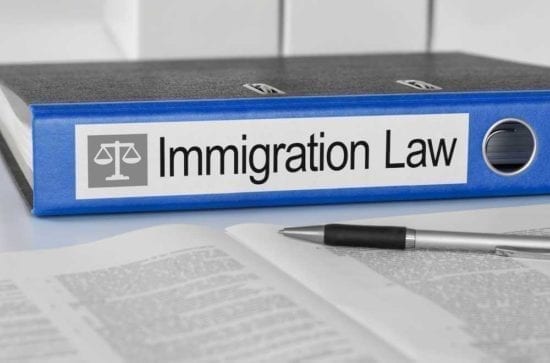Labor laws
The U.S. Department of Labor (DOL) enforces labor standards and laws that protect workers from unsafe or unfair treatment. States and cities have their own rules. Employers must follow all federal, state, and local laws.
Basic rights for all workers
No matter who you are or where you are from, you have the right to:
- Earn at least the minimum wage
- Work in a safe and healthy environment
- Be free from discrimination or harassment
- Receive overtime pay for extra hours
- Take medical or family leave if you qualify
- Join or form a union to improve your workplace
- Report unsafe or unfair treatment without being punished for speaking up
Workers in certain industries and young workers have different rights. Undocumented workers have most of the same rights as other workers. Even if you do not have a work permit, you are still protected by labor laws.
Pay and working hours
Minimum wage
The federal minimum wage is $7.25 per hour. Many states and cities require higher pay. Employers must pay whichever amount is higher.
Tipped workers
If you earn tips (for example, in restaurants or salons):
- Employers must pay at least $2.13 per hour in wages.
- Your total pay (wages + tips) must equal at least $7.25 per hour.
Overtime
If you work more than 40 hours a week, you must be paid 1.5 times your regular pay for extra hours.
Work hours and breaks
There is no federal limit on how many hours adults can work, but:
- Some states have rules about maximum hours or required rest breaks.
- Workers under 18 have extra protections, especially during the school year.
Taking leave
You may qualify for up to 12 weeks of unpaid leave per year if your employer has 50 or more employees. This is when you do not work during major life events such as:
- Birth or adoption of a child
- Caring for a sick family member
- Recovering from a serious illness
There is no federal law requiring paid vacation or sick leave, but some states or cities do. Employers must follow any benefits they promise in writing.
Contact your local WHD office for more information about wages and hours.
Equal treatment and discrimination
It is illegal for your employer to treat you unfairly based on:
- Race or color
- National origin (where you are from)
- Religion
- Age (40 or older)
- Sex, sexual orientation, or gender identity
- Disability or pregnancy
Employers cannot:
- Refuse to hire or promote you
- Pay you less for the same work
- Harass you or fire you unfairly
Men and women must be paid equally for the same job.
Workplace safety
Your employer must keep your workplace safe and free of hazards. They must:
- Provide training in a language you understand
- Offer safety equipment (like gloves, helmets, or masks)
- Tell you about chemicals or other dangers
Skip to section on reporting problems and violations to learn how to report discrimination or unsafe conditions.
Injuries and workers’ compensation
If you get hurt or sick because of your job:
- Tell your employer right away.
- Get medical care.
- You may qualify for workers’ compensation, which helps pay for treatment and lost wages.
- Contact your regional worker liaison if you need more information about safety and health.
In most states, undocumented workers also qualify for workers’ compensation.
Employment and immigration status
You have the right to work free from threats or fear, even if you are not a citizen.
When applying for a job:
- If you do not have a Green Card, U.S. citizenship, or another status that automatically allows you to work, you may need a work permit (EAD card) to show you are allowed to work.
- Employers must check that you are authorized to work using Form I-9.
- You choose which documents to show from the list on the Form I-9. Employers cannot ask for specific ones.
- Employers cannot say no to hiring you just because you do not have a Social Security Number. If you have documents that show you can work, that is enough.
- Employers may use the Social Security Number Verification System (SSNVS) to check that your name and number match. They can only do this after you are hired or added to payroll, and they must tell you if there is a mismatch.
- Employers may ask to see your work papers again later to make sure they are still valid. They cannot use this to treat you unfairly or target you.
- You still have most workplace rights even if your immigration status changes or you lose your work authorization later.

Learn what to do if immigration officers come to your workplace. Know your rights and how to stay safe.
Termination and unemployment
Most workers in the U.S. are “at-will” employees. This means your employer can fire you, or you can quit, at any time, for almost any reason.
They cannot fire you:
- Because of discrimination
- For reporting unsafe or unfair conditions
- For participating in union activities
You may qualify for unemployment insurance if you lose your job and it was not your fault. It is temporary money that helps you pay for basic expenses while you look for work. You must have permission to work in the U.S. to get these benefits.
Privacy and employer monitoring
Your employer may monitor:
- Work emails, computer use, or internet activity
- Company phones and vehicles
- Work storage spaces
Your employer cannot open your personal bags, mail, or belongings. These rules may vary by company, so check your employee handbook.
Health and religious accommodations
If you have a health problem, disability, or religious belief that affects your work, you can ask your employer to make changes that help you do your job.
Examples include:
- Adjusting your work schedule for prayer
- Getting assistive equipment or modified duties
- Learn more from the EEOC or your state disability rights office.
LGBTQ+ and disability protections
Workers with disabilities and LGBTQ+ workers have specific protections under U.S. law, regardless of your immigration status.
- Workers with disabilities: You have the right to equal treatment, accessibility, and reasonable accommodations at work.
- LGBTQ+ workers: It is illegal to be fired, harassed, or denied promotions because of sexual orientation or gender identity.
- Learn more about disability rights and LGBTQ+ rights.
Joining or starting a union
You have the right to join, form, or support a union. A union is a group of workers who come together to:
- Negotiate for better pay and benefits
- Improve safety
- Protect workers from unfair treatment
You do not need to be a U.S. citizen or have a work permit to join or form a union. Your employer cannot punish you for union activity.
Reporting problems or violations
You have the right to speak up if your employer breaks the law, no matter your immigration status. You should not be fired or punished for reporting. If they do, you can file a whistleblower complaint to protect your rights.
Start by reporting to:
- Your supervisor or the human resources (HR) department
- Your union representative, if you have one
If the problem is not fixed or you feel unsafe reporting at work, you can contact these organizations for help.
Report workplace discrimination or safety issues
- EEOC: discrimination at work
- OSC: discrimination based on national origin or citizenship
- OSHA: unsafe or unhealthy conditions
- WHD: unpaid wages or work hours problems
- NLRB: unfair treatment for union activity
Get other help
- National Human Trafficking Hotline: help for trafficking or forced labor
- ACLU: report threats or violations of your rights
- United We Dream: help for people with DACA
- Legal Aid at Work: free self-help information
- Farm worker support
Services are free and often available in multiple languages. You can contact these agencies no matter your immigration status.
ተጨማሪ ከUSAHello
የተወሰነ መረጃ እየፈለጉ ነው?
ዓላማችን በቀላሉ ለመረዳት የሚችሉና በየጊዜው የሚዘመኑ መረጃዎችን ማቅረብ ነው። ይህ መረጃ የሕግ ምክር አይደለም።





